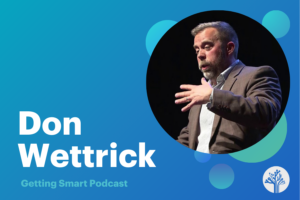Smart Parents are Involved, Informed, Intentional, and Inspirational

Ask parents what they want for their kids and many will say, “We just want them to be happy.” The team curating the Smart Parents series wants more.
“If you accept that your true self is what your talent is, your real identity lies within that talent that you have a passion for,” said piano prodigy Seymour Bernstein (whose story is told in the documentary “Seymour: An Introduction,” directed by actor Ethan Hawke, together in the featured image).
Ask parents a more specific question about the quality they want their kids to have and they say “responsibility.” We want more.
We want young people that take responsibility for their own learning, to allow talent and purpose to guide their development and extend their impact.
Bernstein says we’re at our best when engaged in performing arts because it integrates the intellectual, physical, and emotional aspects of the human experience.
We want our children to build lives, work, and relationships that integrate the intellectual, physical, and emotional. We want them to appreciate that masters of their field, like Bernstein, value humility and exhibit persistence. They “practice, practice, practice.”
The Role of Parents
From this year long investigation into parenting for powerful learning, particularly the stories contributed by 60 parents, we concluded that effective parents are involved, informed, intentional, and inspirational.
Involved. Smart Parents are involved in their children’s lives. They promote student-centered learning exploring options for how, where and when their children learn. They encourage college and career preparation by ensuring that they are progressing at a pace that is right for them, not bored or overwhelmed. They learn alongside their child and involve them in the world of adult work.
Informed. Smart Parents are informed about their children as learners. They are advocates for their learning. They use trips and technologies to activate learner interests. They share information with teachers, mentors, and other providers involved in the son/daughter’s learning. They do the research and look for schools that support student-centered and competency-based learning.
Intentional. Smart Parents are intentional about creating powerful learning experiences. They cultivate mindsets and habits that support lifelong learning. They share intellectual curiosities and model the struggles and joy of learning. They spot opportunities to learn and demonstrate learning in the community through internships and service projects. They promote ownership and involve learners in determining when they feel ready to try something new or on their own. They eat dinner together and talk about the world.
Inspired. Smart Parents are inspirational as learning guides and role models. They find ways to encourage learners to try, to persist, to present, and to progress. They watch, listen, empathize, connect and activate.
Smart Parents appreciate that every young person is unique and that their role–the mixture of expectations and supports–is uniquely adjusted for each learner. What is common is a commitment to cultivating unique talents and linking them to a cause they care about. Smart parents help young people discover and explore their passion and purpose.
Other people’s children
MacArthur Award-winning author Lisa Delpit wrote an important and challenging book, Other People’s Children, twenty years ago. It explored the intended and unintended consequences of biases, practices, and policies when it comes to diverse, particularly African-American, learners.
Smart Parents ask “what responsibility do we have as parents to support powerful learning for other people’s children from less advantaged backgrounds?” While answers to that question are guided by personal ideology, we can suggest three ways to respond:
- Support individual students. Be a mentor or a tutor, host interns at work, and sponsor college scholarships.
- Build the local ecosystem. Our Smart Cities investigation identified seven keys to quality options for every family including sustained leadership, talent development, partnerships that support youth and families, and capacity for new tools and schools. Smart Parents can join or start a local advocacy effort focused on one of these important issues, they could run for school board, or support a youth and families services organization.
- Advocate for equitable state policies. Support school funding that reflects the challenges faced by enrolled students (even if it means less for your children’s school) and equitable access to early learning, K-12 options, and college. Advocate for deeper learning and broader outcomes for all students.
We’re soon concluding this investigation into parenting for powerful learning humbled by the task, excited about emerging opportunities, and committed to the conversation.
This blog is part of our Smart Parents series in partnership with the Nellie Mae Education Foundation. For more information about the project, see Parents, Tell Your Story: How You Empower Student Learning as well as other blogs:







minh mcCloy
interventionist to a stultifying degree
Replies
Tom Vander Ark
thanks Minh, trying to be intentional about parenting...looking for the (thoughtful) midpoint between helicopter and free range